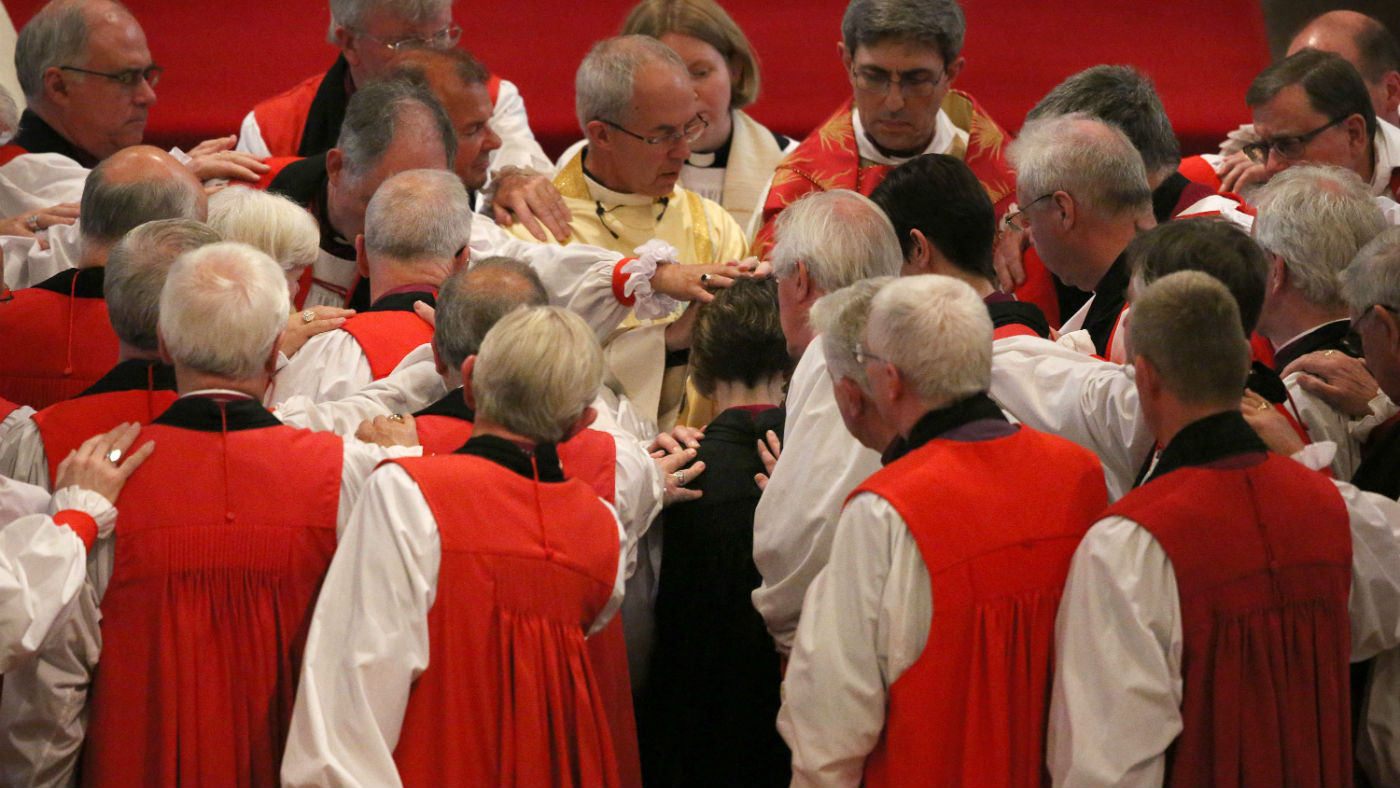Majority of British people say they have no religion
News prompts fresh calls for Government to cut amount of public money going to the church

A free daily email with the biggest news stories of the day – and the best features from TheWeek.com
You are now subscribed
Your newsletter sign-up was successful
For the first time in Britain's history, more than half of the population does not identify as religious, leading to fresh calls for the Government to cut public spending for the church.
According to a recent survey of 2,942 adults by the National Centre for Social Research, last year 53% of people described themselves as having "no religion". Among young people aged 18-25 the proportion was even higher, at 71%.
Overall just 47% of people say they have a faith, down from 69% when the British social attitudes survey was first conducted in 1983.
The Week
Escape your echo chamber. Get the facts behind the news, plus analysis from multiple perspectives.

Sign up for The Week's Free Newsletters
From our morning news briefing to a weekly Good News Newsletter, get the best of The Week delivered directly to your inbox.
From our morning news briefing to a weekly Good News Newsletter, get the best of The Week delivered directly to your inbox.
The news has prompted "fresh calls for the Government to cut the amount of public money going to the church and reduce its influence in society," says The Independent.
But the Bishop of Liverpool said God and the Church "remain relevant" and that declaring oneself to have "no religion was not the same as a considered atheism".
The statistic comes "at a time when we have the most overtly religious prime minister for decades," says The Times's Matt Chorley.
"Theresa May has often spoken of how 'faith guides me in everything I do', and just before the election she said in an interview that 'there is no way that Christianity is being marginalised in this country'".
A free daily email with the biggest news stories of the day – and the best features from TheWeek.com
But the survey shows that the proportion of people who describe themselves as Christian has fallen from more than 67% to 41% in three decades.
Figures last year also showed the Church of England had lost more than 100,000 worshippers in a decade, with attendance falling an average of 1% each year and 11% since 2005.
The Bishop of Liverpool, the Rt Rev Paul Bayes, told the BBC the figures bring a "continuing challenge to the churches" in "a sceptical and plural world".
"Saying 'no religion' is not the same as a considered atheism. People see the point of faith when they see the difference faith makes."
But The Humanist charity's chief executive, Andrew Copson, responded: "How can the Church of England remain in any meaningful sense the national legally established church, when it caters for such a small portion of the population?
-
 The Olympic timekeepers keeping the Games on track
The Olympic timekeepers keeping the Games on trackUnder the Radar Swiss watchmaking giant Omega has been at the finish line of every Olympic Games for nearly 100 years
-
 Will increasing tensions with Iran boil over into war?
Will increasing tensions with Iran boil over into war?Today’s Big Question President Donald Trump has recently been threatening the country
-
 Corruption: The spy sheikh and the president
Corruption: The spy sheikh and the presidentFeature Trump is at the center of another scandal
-
 How corrupt is the UK?
How corrupt is the UK?The Explainer Decline in standards ‘risks becoming a defining feature of our political culture’ as Britain falls to lowest ever score on global index
-
 The high street: Britain’s next political battleground?
The high street: Britain’s next political battleground?In the Spotlight Mass closure of shops and influx of organised crime are fuelling voter anger, and offer an opening for Reform UK
-
 Is a Reform-Tory pact becoming more likely?
Is a Reform-Tory pact becoming more likely?Today’s Big Question Nigel Farage’s party is ahead in the polls but still falls well short of a Commons majority, while Conservatives are still losing MPs to Reform
-
 Taking the low road: why the SNP is still standing strong
Taking the low road: why the SNP is still standing strongTalking Point Party is on track for a fifth consecutive victory in May’s Holyrood election, despite controversies and plummeting support
-
 What difference will the 'historic' UK-Germany treaty make?
What difference will the 'historic' UK-Germany treaty make?Today's Big Question Europe's two biggest economies sign first treaty since WWII, underscoring 'triangle alliance' with France amid growing Russian threat and US distance
-
 Is the G7 still relevant?
Is the G7 still relevant?Talking Point Donald Trump's early departure cast a shadow over this week's meeting of the world's major democracies
-
 Angela Rayner: Labour's next leader?
Angela Rayner: Labour's next leader?Today's Big Question A leaked memo has sparked speculation that the deputy PM is positioning herself as the left-of-centre alternative to Keir Starmer
-
 Is Starmer's plan to send migrants overseas Rwanda 2.0?
Is Starmer's plan to send migrants overseas Rwanda 2.0?Today's Big Question Failed asylum seekers could be removed to Balkan nations under new government plans